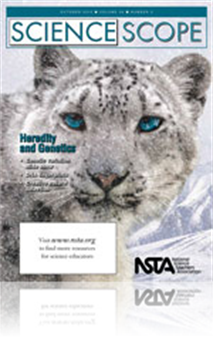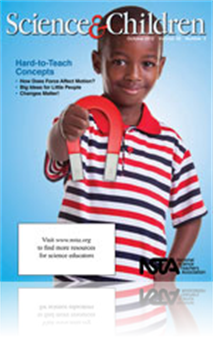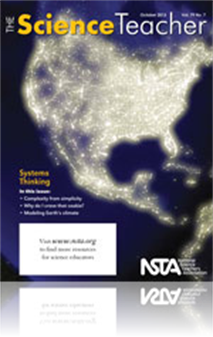All Resources
Journal Article
Scope on Safety: MSDS out, SDS in?
This column shares safety information for your classroom. This month’s issue talks about a revised Hazard Communication Standard....
Journal Article
Editor's Note: Hard to Learn; Hard to Teach
Science and Children’s editor shares thoughts regarding the current issue....
Journal Article
This article describes a learning experience that follows an alternate approach to integrating science and literacy. Teachers use a narrative to encourage children to use their imaginations in learning to describe motion....
Journal Article
Safer Science: Lab Accident Wakeup Call
This column provides best safety practices for the science classroom and laboratory. This month’s issue discusses an example of a lab accident....
Journal Article
Students clear up science misconceptions when they learn about the "fantastic four" ways in which force affects motion. ...
Journal Article
Teaching Through Trade Books: Energy Makes Things Happen
This column includes activities inspired by children’s literature. This month’s issue attempts to shed light on the topic of energy....
Journal Article
Firsthand experience with spiders debunks student misconceptions. The activities and methods described in this third-grade lesson can be applied to a variety of animals that students have misconceptions about or consider dangerous....
Journal Article
Guest Editorial: Hard to Teach Does Not Mean Impossible
An opinion piece about difficult-to-teach topics....
Journal Article
Methods and Strategies: Selecting Appropriate Topics
This column provides ideas and techniques to enhance your science teaching. This month’s issue looks at why some science topics seemingly present roadblocks to learning, strategies teachers may consider in analyzing and circumventing those problems...





